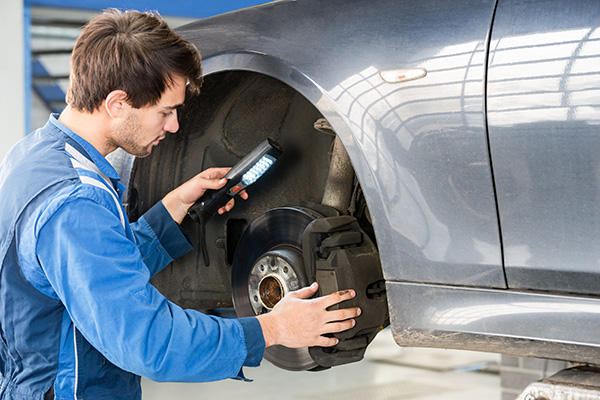
Brakes are one of the most essential components of your vehicle. Without them, it would be impossible to stop safely. Over time, brake components wear down, and if not addressed, this can lead to reduced performance or even brake failure. This is where a professional brake check comes in. But what exactly happens during a brake check? Let’s take a look at what you can expect when you bring your car in for this service.
Why Is a Brake Check Important
Before we jump into the details, let’s address why brake checks are so important. Your brakes are constantly in use, whether you're driving in traffic, cruising on the highway, or stopping at red lights. With all that wear and tear, it's easy for small issues to develop. A brake check ensures that everything is functioning properly, helping prevent accidents and expensive repairs down the line. If you ever notice a squealing sound, vibration, or reduced stopping power, it’s time to get your brakes checked.
What Does a Professional Brake Check Involve
A professional brake check is more than just a quick glance at your brake pads. It involves a thorough inspection of all brake system components to ensure they’re working at their best. When you take your car in, the technician will typically start by assessing the overall condition of your brake system, including the brake pads, rotors, calipers, and fluid levels. Here's what to expect:
Brake Pads and Shoes Inspection
One of the first things checked is the thickness of the brake pads. Over time, these pads wear down, and if they’re too thin, it could lead to reduced stopping power. If the pads are wearing unevenly, this could signal other issues, such as problems with the brake calipers or alignment. The technician will also check the brake shoes (in drum brakes) for wear.
Rotors and Drums
Rotors (or drums) are the parts that the brake pads press against to stop your vehicle. If they become warped or scored, they can cause vibration or even lead to more serious brake failure. A technician will check the rotors for any signs of damage or wear, and depending on the severity, they may need to be resurfaced or replaced.
Brake Lines and Fluid
Brake fluid is crucial for the operation of your brakes. It transfers force from your foot on the pedal to the brake components, allowing your car to stop. The technician will inspect the brake lines for leaks or damage during the brake check. They’ll also ensure that your brake fluid levels are adequate and that the fluid itself is clean. Over time, brake fluid can become contaminated with moisture or debris, which can affect braking performance. If necessary, the technician will recommend a brake fluid flush.
Calipers and Hardware
The brake calipers clamp down on the brake pads to stop your vehicle. If these become damaged or worn, they can cause uneven brake pad wear or reduced braking effectiveness. The technician will inspect the calipers for any signs of leaking fluid or malfunctioning parts. They’ll also check any hardware involved in the brake system, such as springs, pins, and clips, to ensure everything is in good working order.
Brake Lines and Hoses
A brake check will also involve inspecting the brake lines and hoses for any signs of leaks or wear. Even small cracks or leaks in these lines can lead to a loss of brake fluid, which could result in brake failure. The technician will replace or repair any damaged lines or hoses to keep your brake system operating effectively.
What Happens After the Brake Check
Once the brake check is complete, the technician will report any issues they find and make recommendations based on the condition of your braking system. If the brake pads are worn down, for example, they may suggest replacing them. If the rotors are damaged, they might recommend resurfacing or replacing them as well. They’ll also alert you to any other components that may need attention, such as the brake fluid, calipers, or lines. If everything checks out, they’ll give you the green light to continue driving with peace of mind.
How Often Should You Get a Brake Check
It’s a good idea to get your brakes checked regularly to avoid any unexpected issues. Most experts recommend having your brake system inspected every 12,000 to 15,000 miles or once a year, but this can vary depending on how often you drive and the conditions in which you drive. You may need more frequent checks if you frequently drive in stop-and-go traffic or hilly terrain. Always listen to your vehicle – if you notice anything out of the ordinary, like strange noises or a soft brake pedal, don’t wait for your scheduled check. Addressing problems early can save you time, money, and potential safety hazards.
How a Brake Check Can Save You Money
Regularly checking your brakes can save you money in the long run. Identifying problems early can prevent small issues from turning into expensive repairs. For example, worn-out brake pads can damage the rotors, which are more expensive to replace. Neglecting brake fluid flushes can lead to corrosion and system failure, both of which could require costly repairs. A brake check helps ensure that your braking system is in good shape, which can ultimately prevent the need for larger, more expensive repairs down the road.
Your brakes are too important to overlook. Schedule a comprehensive brake check at Marc Yount's Tire Pros today and enjoy worry-free driving tomorrow.